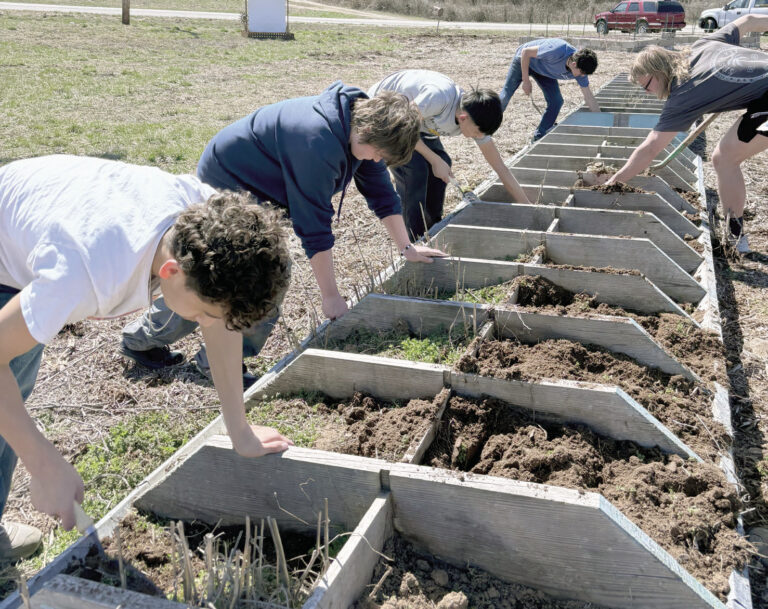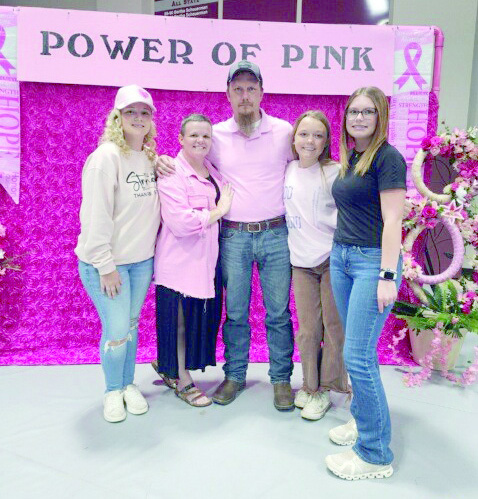
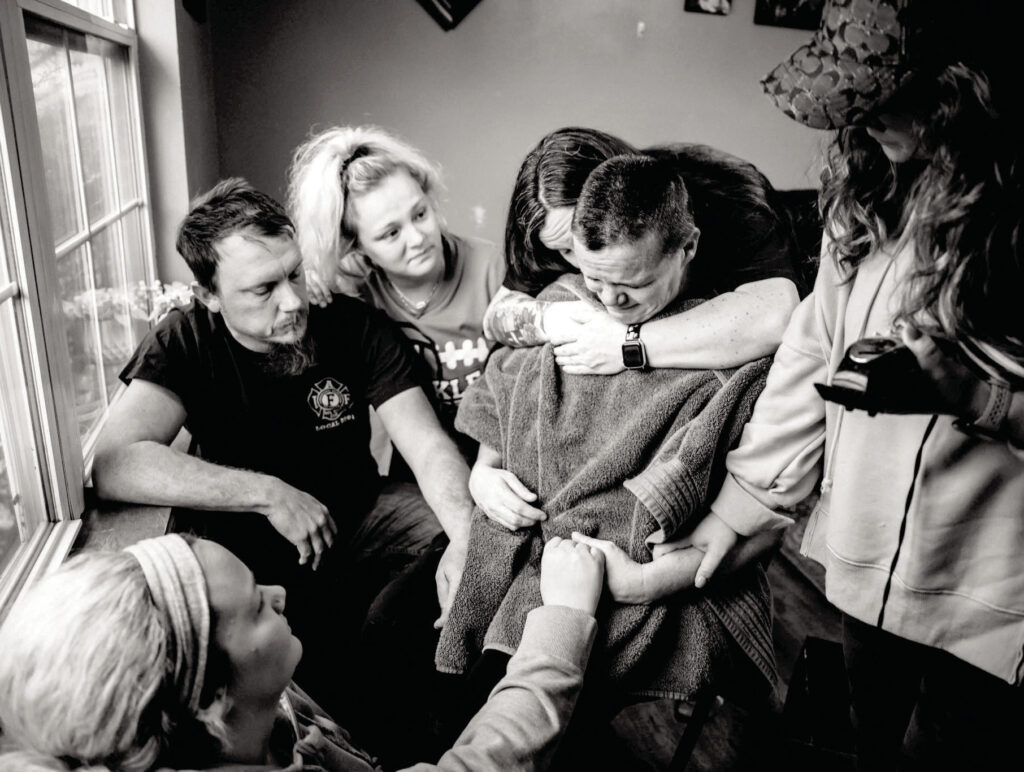
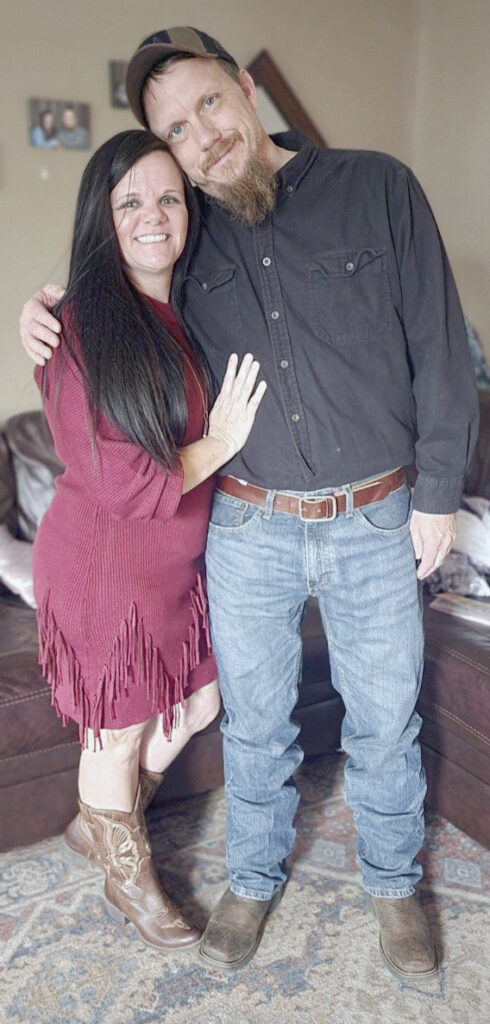
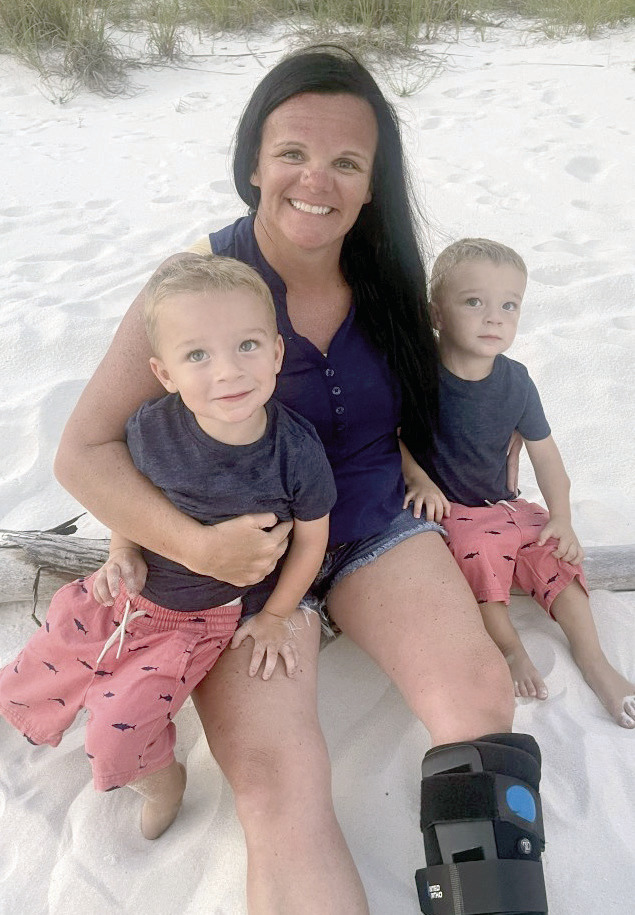
BY JORDAN TROUTMAN jtroutman@cassville-democrat.com
Karen Waltrip, of Monett, turned 40 years old in February, but she was just 37 years old when her battle with breast cancer began.
Breast cancer diagnoses have decline by 0.3 percent per 100,000 women over the age of 20 between 1999 and 2018, according to a statistical analysis by the U.S. Centers for Disease Control and Prevention (CDC).
However, it rose equally at 0.3 percent in women 20 to 39 years of age, meaning younger women are being diagnosed more frequent. The U.S. Preventive Services Task Force has recently updated its guidelines for breast cancer screening to account for these changes, according to the Dana-Farber Cancer Institute.
“I do have a family history of breast cancer,” Waltrip said. “My aunt on my mom’s side had the same kind of breast cancer I have.”
At 37, Waltrip said she felt a lump that would only appear during her menstrual cycle.
“The first time I went to the doctor, it wasn’t there,” she said. “I said I wasn’t concerned. When the lump eventually didn’t go away, I told myself, ‘It’s nothing, it’s fine. I didn’t want it to be something.”
Eventually the lump stayed, and Waltrip made an appointment with her doctor.
“She said she didn’t like it,” Waltrip said. “She decided to do a diagnostic mammogram. They said it looks like cancer, but they couldn’t diagnose it without a biopsy.”
On Oct. 4, 2023, a biopsy was completed.
Waltrip is a nurse, so when she first went to the doctor, the nurse she spoke to pleaded with her to not get on her portal to look at her results.
“She knew that I would know what I was looking at and what it meant,” Waltrip said. “But, I didn’t listen. It was a Sunday night when I logged in to the portal, and I knew I had breast cancer. They called me on Monday to tell me what type and stage I had.
“It was amazing to me how fast they moved me through the process. I felt like my physicians pushed me to the front of the line for treatment.”
Waltrip said her employer was also amazing and allowed her the time she needed to go through the process.
“I had a great team, both in the form of support and in my physicians,” she said. “Aside from the fact it was breast cancer, I had a good experience.”
Waltrip said chemotherapy was awful, as she had a bad reaction.
“I was so sick,” she said. “It was like clockwork: three days after chemo I was sick. By the second round of chemo, I had a worse reaction. I had a rash and I lost my breath. I was very lucky to only have to do two rounds.”
Waltrip was then put on hormone replacement therapy.
“It caused symptoms of menopause,” she said. “My oncologist was amazing in the education part of this.”
Waltrip said she was fortunately negative for the gene that would pass the same type of breast cancer to her children.
“I was thankful for that,” she said. “I have two adult daughters, two grandsons, and two bonus daughters with my fiancé.
“Now, because of my diagnosis, my two oldest daughters will be able to get mammograms 10 years before they normally would have, and it will be approved through insurance.”
Waltrip said that was one of the harder parts of her treatment – being denied by insurance.
“It was the only hang up,” she said. “Because I was under 40, my insurance tried to deny everything. But my doctors worked with them constantly to get me the care that I needed. I never felt even one time ignored or brushed off [by doctors] with any of my concerns.”
The only thing Waltrip questioned due to her background in medicine was why they decided to do surgery before chemo.
“I was confused, because I thought if you did surgery before chemo, it would spread,” she said. “But mine was hormone and not HER 2 positive, and I was lucky that it was the most treatable and to have caught it early.”
Waltrip said when they took the tumor out, they gave her an Onco Score, which is a breast cancer reoccurrence score.
“They said if it was higher than 20, they would send me to the oncologist,” she said. “Mine was 27.
“Due to the chance of reoccurrence, I had to do chemo.”
October marks one year since Waltrip’s biopsy, and Nov. 2 marks one year since she received her breast cancer diagnosis.
“There have been moments of tears and moments of happiness, and I am just happy to be here,” she said. “If I had waited a few more years to get a mammogram, what would have happened?
“Both of my parents died of cancer, my mother from lung and my father from esophageal. My half-brother has pancreatic cancer.”
Waltrip said she isn’t sure why she didn’t take the lump seriously when she first felt it.
“If I have any advice, it’s to just go to the doctor and get your labs done,” she said. “Do all of the tests. It’s scary, yes. But I was 39 years old. I think they say to get a mammogram at 45 now, [but if breast cancer is happening to younger women,] why can’t we get it at 35?”
Waltrip also said that the mammogram wasn’t at all what she expected it to be.
“I thought it would be extremely painful,” she said. “The most annoying thing was that I am short, so I had to stand on my tiptoes to get into position.”
Waltrip said one of the hardest things she experienced throughout this journey was her hair loss.
“The first question I had for my oncologist was if I would lose my hair,” she said. “There was a small chance I wouldn’t, so I had hope. The first round of chemo, I didn’t lose a lot, so that made me have even higher hopes that I wouldn’t lose my hair.”
By the second round, however, Waltrip was getting concerned.
“One morning, I jumped in the shower,” she said. “I began washing my hair, and I’m not sure how to explain it, but it felt like I couldn’t get the shampoo out of my hair.
“I pulled my hands down and they were just covered in my hair, the bottom of the tub was filling with water because my hair was clogging the drain.”
This was in the middle of an ice storm, and Waltrip was home alone.
“I freaked out,” she said. “I called everyone. I felt like a child. I was scared, and I didn’t know what to do.
“When all the people I called started to show up, I felt so stupid. It was just hair. My hair was always my favorite thing about me though.”
Before chemo, Waltrip had dark hair down to her waist.
“I loved it, and I took care of it,” she said. “I felt like I had lost a piece of myself. I laid in bed and I didn’t want to get up or even move.
“The next day was my first day back to work. So, I put on a hat and prayed no one would say anything. They all gave me hugs and told me they were happy to see me, but they didn’t say anything about my hair.”
Waltrip said she struggled to even look at herself in the mirror.
“I’d cover them up,” she said. “By the spring, it had started to grow back, but it was hard to go out without something on my head.
“I have already lost my breasts, and now I’ve lost my hair. Am I a woman?”
Waltrip said that day she lost her hair was the worst day of her life.
“I don’t know where I would be without my support system,” she said. “This is a hard thing to go through. We all let our lives go by, and before you know it, it’s been a year since you spoke to that friend or family member. Then something like this happens and they show up and are there for you — it’s an amazing feeling.”
Something Waltrip did not expect to change for her was her taste.
“I used to drink two pots of coffee a day,” she said. “After chemo, it is just the worst taste ever. So, I haven’t had coffee since February.”
Overall, Waltrip encourages women to watch out for themselves and to be their own advocate.
“It is your right to have any concerns you have checked out,” she said.


